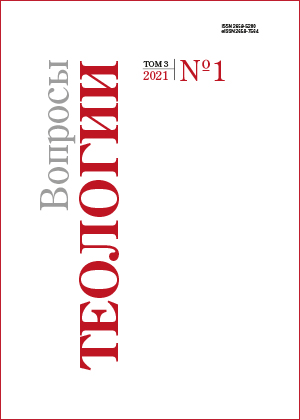Contemporary problems of missionary work among the Samoyedic peoples
DOI:
https://doi.org/10.21638/spbu28.2021.106Abstract
The article examines one of the most important traditions of the Samoyedic peoples, which complicates the mission of the Russian Orthodox Church — the consumption of fresh blood of a young deer. This tradition refers to the practice of sacrifice, so it cannot be fully accepted by the Church as there is a canonical prohibition against consuming blood. As a result, a problem arises that hinders a successful mission among the Samoyedic peoples and impedes the growth of the Church. Despite the ban, there is also a modern medical assessment on the use of animal blood by humans, according to which a certain benefit of blood as a nutritional element is recognized. The state, in turn, is interested in maintaining the traditional way of life of the Nenets. It can be stated that the ban penetrated into new Testament Christianity under the influence of Judeo-Christians. The purpose of this article is to examine the effectiveness of missionary activity among the Samoyed peoples and to identify the possibility of missionary reception in light of the cultural tradition. The authors propose a new strategy for missionary work among the Samoyed people, which will be feasible if the Council of Bishops will consider relaxing the canonical prohibitions for the Samoyeds.
Keywords:
mission, nutrition, blood, Russian Orthodox Church, missionary work, small peoples
Downloads
References
References
Downloads
Published
Issue
Section
License
Articles of "Issues of Theology" are open access distributed under the terms of the License Agreement with Saint Petersburg State University, which permits to the authors unrestricted distribution and self-archiving free of charge.




